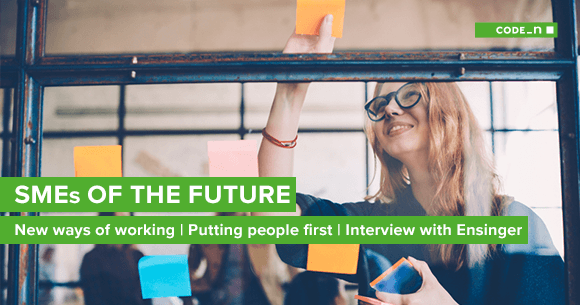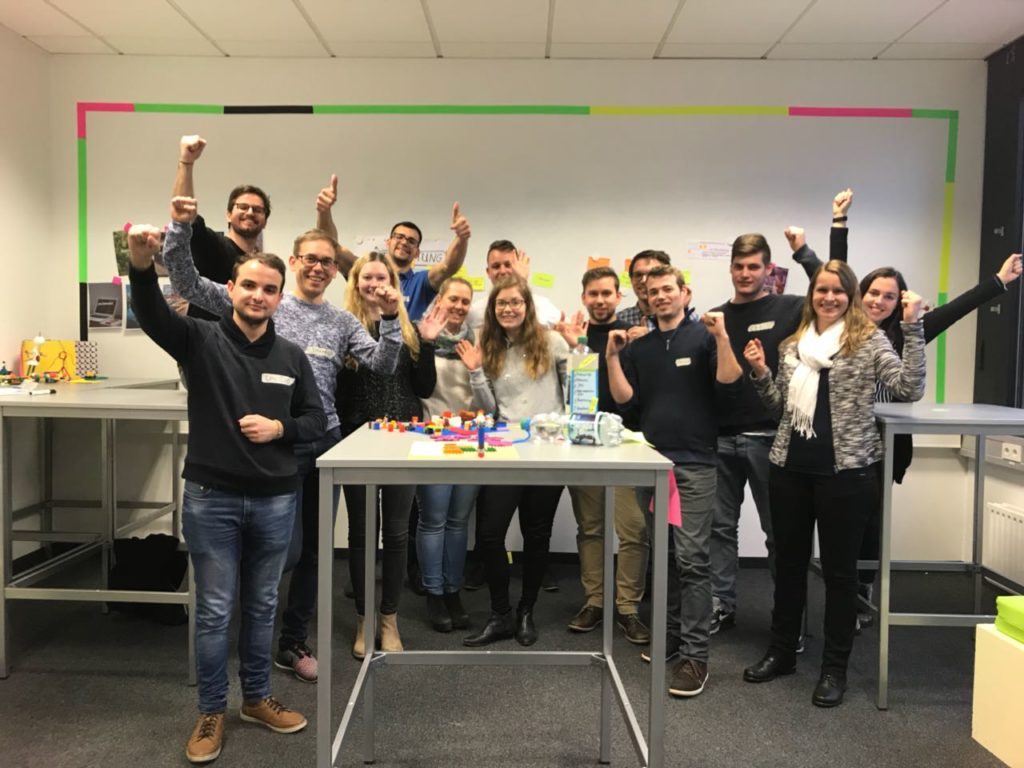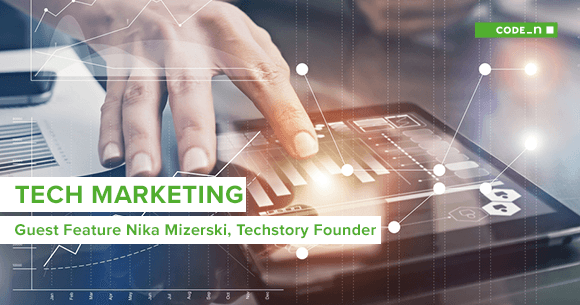The future of work for SMEs | An interview with Ensinger
 Technology and its impact on how we work is the driving obsession of the moment. Small and medium-sized enterprises (SMEs) have a key role to play in the shift towards a digital future, especially in Germany, where these companies represent the backbone of the country’s economy. At CODE_n, we strive to provide tailored support to SMEs to help them overcome potential obstacles and offer them access to a wide range of innovation formats and a rich network of startups. To find out more about the challenges and opportunities for SMEs in the context of the future of work and digitalization, we recently caught up with Johannes Fritz, Shareholder and Internal Sales Staff Coordinator at Ensinger Mineral-Heilquellen GmbH, a family business since 1952.
Technology and its impact on how we work is the driving obsession of the moment. Small and medium-sized enterprises (SMEs) have a key role to play in the shift towards a digital future, especially in Germany, where these companies represent the backbone of the country’s economy. At CODE_n, we strive to provide tailored support to SMEs to help them overcome potential obstacles and offer them access to a wide range of innovation formats and a rich network of startups. To find out more about the challenges and opportunities for SMEs in the context of the future of work and digitalization, we recently caught up with Johannes Fritz, Shareholder and Internal Sales Staff Coordinator at Ensinger Mineral-Heilquellen GmbH, a family business since 1952.
Iulia: What does the future of work mean to you?
Johannes: For me personally, the future of work means becoming more flexible and more human. Why? Because in my opinion, future technology comes along with opportunities as well as with threats. I think that it’s imperative to do good “cherry-picking”, so that technology serves your business. Being more flexible means that work will be much less restricted to a specific place or time. Regarding the human factor I am convinced that good leadership is becoming more and more crucial nowadays when we are constantly confronted by change. Seeing the individual in the team, developing his or her skills and releasing the game-changing potential of your team will be of critical importance.
Iulia: What are the biggest challenges and opportunities you see for small and medium-sized enterprises?
Johannes: For us, at Ensinger, looking into the future means challenging and rethinking some of our well-practiced patterns and processes. This, of course, also affects HR processes. What we already see today is that expectations towards the employer are changing. On the one hand this comes from a scarcity of well-educated specialists in the business metropolis of Stuttgart, on the other hand the generations X, Y and Z set their priorities in business and private life differently. We are currently discussing how Ensinger can handle these challenges – flexible working time models, shift models and health service offers in particular. Ensinger has always been and still is a family-owned and family-led business, and that is both a challenge and an opportunity. We will have to communicate our benefits and unique employer value proposition of a medium-sized family firm more clearly. Especially the tendency towards doing meaningful work that matters is an opportunity for all SMEs. We have to take care that our “family factor” is experienced in everyone’s work, every day.

Ensinger Team at CODE_n SPACES
Iulia: How do you maximise engagement of your employees at Ensinger?
Johannes: We do this by practising a culture of fairness and second and third chances. We don’t always and everywhere succeed, but looking back, I can say that it worked out pretty well. This brings me to the next point. Our employees participate in our success. They can even choose whether they would like to get the profit-sharing or have a save 13th month salary. Furthermore, our employees get a monthly contingent of free, high-quality mineral water and soft drinks.
Iulia: How do you attract and retain talent and leaders?
Johannes: We mainly follow the approach of training our future employees and developing our leaders. Every year we hire around five to eight new apprentices. Many of our former apprentices are now in a leadership position. Due to the rising challenge of demographic change, we also have to hire externals. In these processes we partner with experienced recruitment agencies.
Iulia: What are the skills that you think workers will need in order to thrive in the workplace of the future?
Johannes: Obviously, anyone who is able to code or analyze data will be of great value for any company. This does not mean that everybody has to take coding classes now, but being generally open for new technology and understanding the fundamental functionalities of digital interfaces will be essential. At Ensinger we are in the midst of modernising our machinery. With this, human-machine interactions get more and more digitalized. At the same time, all the effects of a “VUCA World” can bring confusion or feelings of not being able to keep up. Therefore, communication and team-working skills will gain importance. Problems have to be addressed quickly and solved in teams because their complexity will also increase heavily in the future.
Iulia: Last, but not least, how do you plan on maintaining a high level of innovation in your company?
Johannes: Innovation is not only about the fancy, emerging technologies that are hyped across all media. Innovation starts, and most often is executed, at your everyday workplace. Its root is a sense and desire for excellence. An inner motivation to make the standard processes better – meaning faster, less prone to error, quieter, more efficient and so on. Besides this, we will definitely have to keep our eyes open, recognise the changing environment and technologies around us, and adapt the technologies that suit our business best.




Write a comment